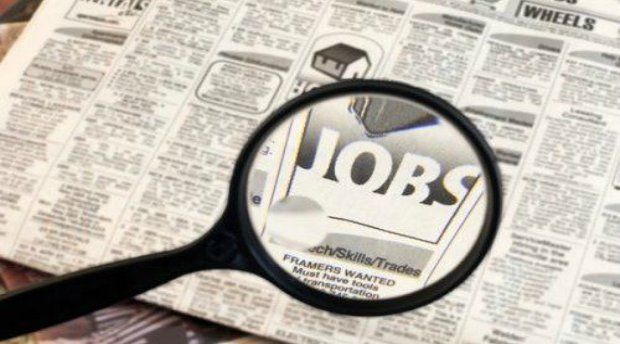How to Feel If You Keep Losing Jobs
Post Views 55The pink slip is wafting to earth like an autumn leaf, proving that lightning does strike twice in the same place. You’ve just lost your job for the second time in two years. Or maybe 11 months, or only three months. You’ve been torpedoed unexpectedly. The captain is screaming for damage control reports in your mental intercom. The stunned crew doesn’t know what the damage is or how to respond.
This scenario is becoming more common in today’s era of big changes – realignments, midnight raids and paradigm shifts. You knew the long-cycle career path was dead and that periodic changes were to be expected. But does that mean you must worry about being downsized before you’ve even hung your pictures on your new office wall? Will you have to conduct your whole career on the defensive? What should you feel, think and do?
When the torpedo hits, slow down. Your fight or flight reflex is going to work overtime, pushing you to grab your Rolodex, phone everyone you know and yell, “Help!” at the top of your lungs. Curb this urge. It probably won’t help.
When you sound the alarm, you communicate alarm. Not competency, poise, perspective and professionalism. Panic scares away allies and professional employers alike. If you can’t answer the question, “What exactly happened, anyway?” and “What do you want to do next?” clearly, calmly and convincingly, unplug the phone until you can.
You’ve Got Some Explaining to Do
It’s essential to engage in frank and realistic dialogue with yourself, your spouse and family, friends and supporters and then with the job market. Address these two issues:
Causes: “What happened, why and should I have seen it coming?”
Implications: “What will this mean to my employability, prospects, advancement, earning capacity, self-esteem and relationships?”
Other questions you’ll need to address include:
- Is it really my fault? Is there anything I could have done to prevent it?
- Am I competent? Unlikable? Naïve? Over my head?
- If I failed, will I fail everywhere and always?
- Where did I go wrong? In the interview? Job? With tasks or people?
- Are we going to have to make sacrifices? How will this affect our quality of life?
- How long will you be out of work this time? Will we have to move again?
- What will I tell my friends? Does anyone care how this impacts us?
- How can I help someone who has just suffered a blow to his or her security and self-esteem?
Questions that prospective employers and recruiters may have include:
- What’s the deal here – bad luck, skills, personality or judgment?
- Will this setback make this candidate overcautious, pessimistic or clinically depressed? Was this whammy a career-ender?
- Would we be hiring damaged goods? Are we buying into a lawsuit?
- Are the candidate’s prior career accomplishments believable?
Before you move ahead, you must examine what happened without sugar-coating or blame. If you’re skilled at self-scrutiny and objectivity, you may be able to cross-examine yourself. Otherwise, enlist a friend as an external sounding board or interrogator. Any acquaintance who’s a headhunter is ideal. As professional cynics and risk-reducers, headhunters won’t buy any rationalizations.
As you play 20 questions, include the following:
Were the events that led to my job loss foreseeable? Did they have roots before I was hired, or was I OBE – overtaken by events?
If they were foreseeable, why didn’t I see them? Were relevant facts kept from me, or did I overlook factors I should have noticed?
Was I the only one to lose my job, or were many employees affected? If some colleagues weren’t affected, why?
Was my job loss related most to problems with goals, roles, performance, or interactions? This assessment is known as the “GRPI” model for troubleshooting.
Why didn’t the interview process identify and address potential problem areas? What can I learn that will help me interview?
Did I oversell myself by creating expectations I couldn’t meet, or undersell myself making me seem ambitious and aggressive when I started my new job?
A Clearer Analysis
Often, it’s hard to avoid distorted thinking about the causes and effects of adverse events. Most people carry around an unconscious “explanatory style” that serves as a lens through which we shape our beliefs about events, both good and bad.
Common “errors in logic” that can distort beliefs about the causes of negative events include:
- Personalizing – telling yourself “it’s all my fault,” when the facts suggest otherwise.
- Jumping to conclusions – attributing a cause when there’s little or no evidence to support it.
- Tunnel vision – focusing on insignificant details while screening out beliefs about more important factors.
- Overgeneralizing – making sweeping conclusions about other and future events based on a single, present adversity.
- “Mind reading” – assuming you know what someone thinks or expect them to understand what you’re thinking.
- Magnification/minimization – magnifying negative events and minimizing positive factors.
Do any of these describe the thought processes you’ve had? Can you see how they’d hinder your attempts to come to grips with the realities of what caused your situation?
What’s Next
These errors in logic also may affect your judgment about the implications of your predicament. It’s easy to catastrophize, envisioning a downward-spiraling chain of woes, each building on the last and ending with scavenging your next meal in a dumpster. You might think, “If A happened, then B might happen,” without analyzing the probability of B. Then you may continue to “If B happens, then C might happen.” This way lies despair, as you become convinced that your whole life has become an unstoppable train wreck.
Sadness and depression are emotions that stem from our belief that we already have suffered a loss – loss of a person, of a job, of our self-worth. Anxiety, on the other hand, is the emotion that sets off the alarm. Both can get utterly out of control if our thinking becomes inaccurate and unrealistic.”
There’s a difference between the questions “What’s going to happen next?” and “What am I going to do next?” The first is passive and suggests little control over a tumultuous sequence of catastrophic events. The latter connotes the possibility of activity and control. You’re first priority after a job loss is to engage in a rigorous process of self-disputing erroneous beliefs about its causes and to put the implications of your predicament into perspective. Start by answering the following questions.
What’s the worst-case scenario? What’s the most-likely scenario?
Has my credibility or marketability truly been damaged? If so, in what way? Be specific.
Is this the famed “wake-up call”? Is it a signal that my career was headed in the wrong direction?
Do I have appropriate explanations about the level, role and setting in which I can add value and find satisfaction?
Before you launch into another whirlwind job-search campaign, you must set some aggressive objectives. As the old saw goes, “If you don’t know where you’re going, any road will get you there.” You could get cut to ribbons as you walk into a buzz saw if you’re still punch-drunk from your job loss.
You’ll need to engineer a route to resiliency. This may be hard to do alone. Bottling it up inside is ill-advised. You may lose a valuable, caring and more objective source of support and deprive others of the chance to express and work through their anger, loss and anxiety.
An Employer’s View
If you’ve lost two jobs within a short period of time, prospective employers may find your experience as alarming as it was shocking to you. It forces hiring managers, headhunters, ad-screeners and networking contacts to work harder. They have to hunt through all aspects of your credentials, accomplishments and personal presentation for signs that you are, in fact, a loser. They have to worry whether you’re a fraud, a jerk or an embodiment of the Peter Principle, erroneously promoted above your level of competency.
Employers are risk averse. Sympathy for innocent victims or minor-league mistakes isn’t their strength. Their idea of fit focuses first on what value you can add to their organization. Particularly in the private sector, they have no incentive to be charitable. “I don’t,” says one senior HR professional, “hire people to self-actualize on my front lawn. I care more about what I want than what they want.”
You may face the same skepticism as career changers. Prudent employers are likely to ask, “What’s wrong with this picture? If your most recent job represents your highest level of competency, why are you in the job market?”
To allay their suspicions, your reasons for your situation must sound candid, complete and credible. The question, “Why are you in the job market?” has a sharper edge when aimed at you than when asked of a candidate who chose to resign after 10 progressively responsible, promotion-laden years with a respected employer.
When formulating your explanation, take the high road. Don’t personalize things or resort to name-calling. If the facts support justifiable anger, let them speak for themselves. You’ll gain nothing by trying to enlist the potential employer in a moral crusade against those who may have wronged you. Your explanation may fall under one or more of the following categories:
- Incomplete information – “If I had known, I wouldn’t have.” If the fault in not carrying out full due diligence was yours, say so, perhaps in the form of what you’ll be certain to ask next time.
- Changed circumstances – The market, government, regulations, cost of materials, competition, technology or ownership changed.
- Changed people – The board, executive team or organizational chart changed, your champion departed, people retired.
- Singular events – The plant, project, alliance blew up. Make sure you explain why these events won’t happen again.
- Bad fit – The responsibilities and satisfactions didn’t reward me. There were conflicts in goals and values or stylistic clashes. State these factors calmly, objectively and dispassionately and make sure they’re true. Candor won’t hurt your candidacy. BS will, whenever and however it’s detected.
You’ll take some shots. In some cases, interviewers’ skepticism and caution will give way to scorn and hostility. If someone comes at you hot and heavy, deflect his energy, rather than trying to combat it. If he wants to take a shot at you, let him. If you tell skeptical interviewers, “You’re wrong. That’s not how it happened,” you’ll be overpowered. But if you validate their fears – and their right to have them – then put them into a fuller perspective, you’ll empower the skeptics and address their concerns at the same time.
How to Feel If You Keep Losing Jobs by Granted Contributor



 How to Job Search When Already Employed
How to Job Search When Already Employed  Top 10 Tips for How to Cope Financially After a Layoff
Top 10 Tips for How to Cope Financially After a Layoff  The Bright Side of Unemployment
The Bright Side of Unemployment  How to Explain Being Fired
How to Explain Being Fired  What to Do after a Layoff
What to Do after a Layoff  How to Cope With Losing a Job
How to Cope With Losing a Job  5 Steps to Take after Getting Laid Off
5 Steps to Take after Getting Laid Off